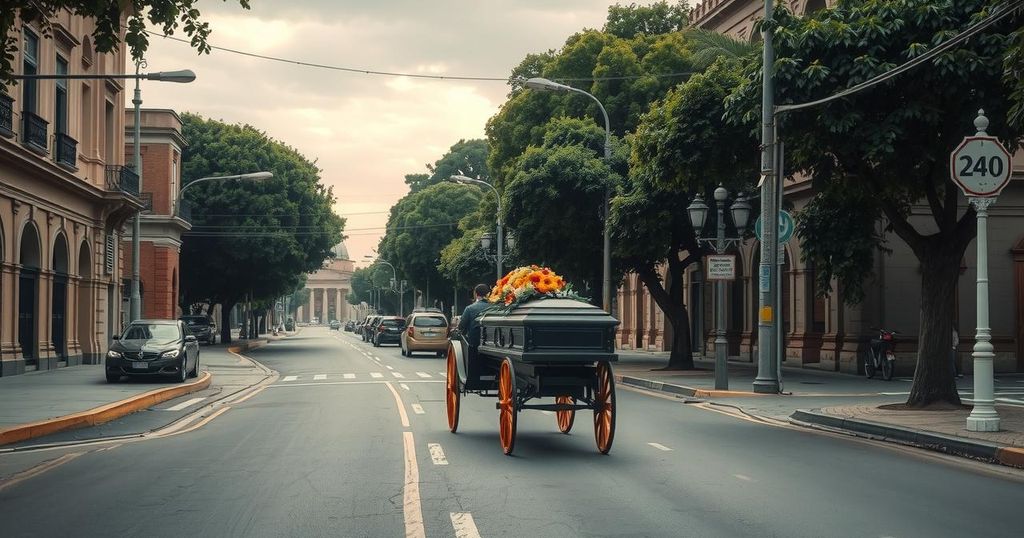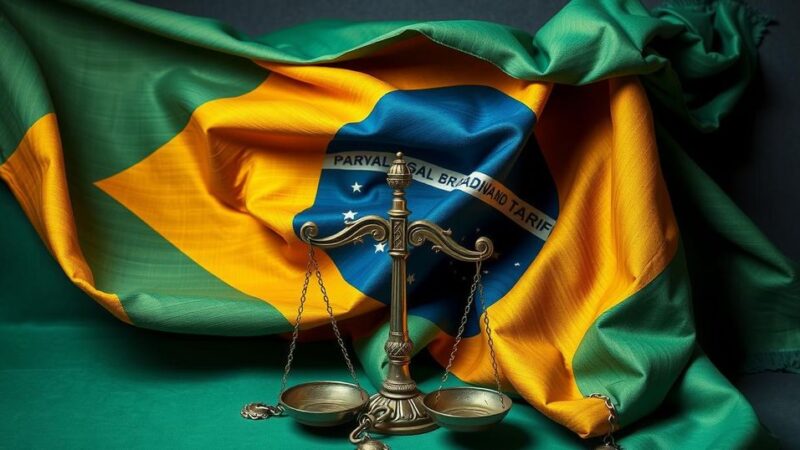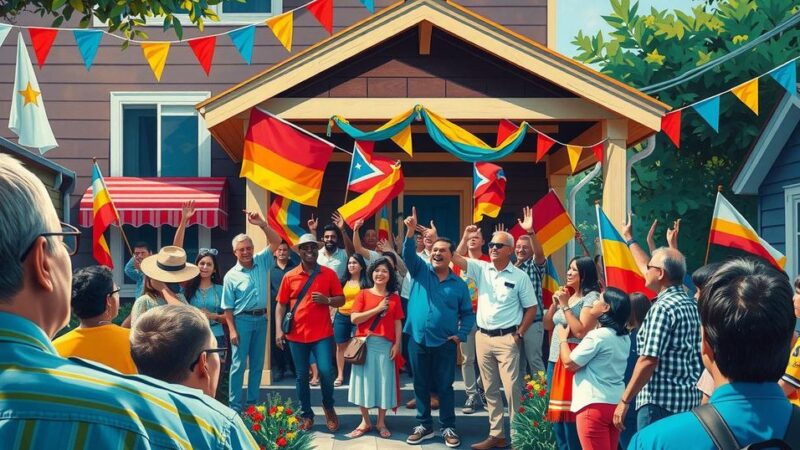Mourners gathered in Montevideo for former President José Mujica’s funeral, honoring a leader known for his humility and significant contributions to social justice. President Yamandú Orsi declared a national mourning period as thousands lined the streets for a poignant farewell, emphasizing Mujica’s lasting legacy in Uruguay’s progressive history. Mujica, who passed away at 89, was celebrated for his radical political journey and impactful reforms in the nation.
Mourners gathered in Montevideo on May 14, 2025, to say a heartfelt goodbye to José Mujica, a beloved former president who was seen as an iconic figure on the Latin American left. Crowds flocked from all over Uruguay to remember Mujica, who was widely known for his humble lifestyle and straightforward approach to politics. His coffin, adorned with a flag, was transported on a gun carriage through the streets, drawing thousands of supporters along the three-hour procession route.
José Mujica passed away at the age of 89 at his modest farmhouse outside of Montevideo. Notably, he lived his life rejecting the opulence of the presidential palace, instead favoring his simple three-room home. While thousands showed their respect during the funeral, they chanted heartfelt phrases in honor of Mujica, such as, “Pepe, dear, the people are with you!” Many mourners, both young and old, expressed their grief not just verbally but also through applause as the cortege moved through the city’s streets.
In light of Mujica’s passing, President Yamandú Orsi declared three days of national mourning. This decree highlighted Mujica’s significant contribution to society, particularly his “humanist philosophy.” Over this period, the government closed operations, except for necessary functions, and flags on public buildings were lowered to half-staff.
Yamandú Orsi, who is seen as a protégé of Mujica from the left-leaning Broad Front party, held the funeral procession and offered his public respect alongside other officials and Mujica’s long-time partner, Lucía Topolansky. This leadership structure emphasizes a continuity of the humble approach to governance that Mujica exemplified during his presidency from 2010 to 2015.
Born on May 20, 1935, Mujica would have celebrated his 90th birthday next week. Throughout his presidency, Mujica gained acclaim for progressive policies, including the legalization of marijuana and same-sex marriage, as well as for forging ahead with strong abortion rights and advancing alternative energy initiatives. Yet prior to his political rise, he was part of a radical leftist organization, the Tupamaros, engaging in criminal activities during the 1960s.
Mujica spent his final years publicly supporting political movements he believed in, even participating in elections, and casting his vote for Orsi last fall. Sadly, he had been battling esophageal cancer since April 2024, which ultimately contributed to his death. This massive outpouring of grief and gratitude for Mujica reflects his complex legacy and the indelible mark he left on Uruguayan society and beyond.
The funeral of José Mujica marks the end of an era for Uruguay, as thousands gather to honor a leader who embodied humility and progressive values. His life, spanning from radical revolutionary to beloved president, shaped significant social change in Uruguay. The nation now embraces a legacy that challenges the norms of governance while promoting social equality and justice, as many remember Mujica fondly. From his simple lifestyle to groundbreaking reforms, Mujica’s death prompts both mourning and reflection on his impactful journey. The three days of mourning declared by the government signify a collective recognition of his contributions, cementing his role in the hearts of many Uruguayans.
Original Source: apnews.com






